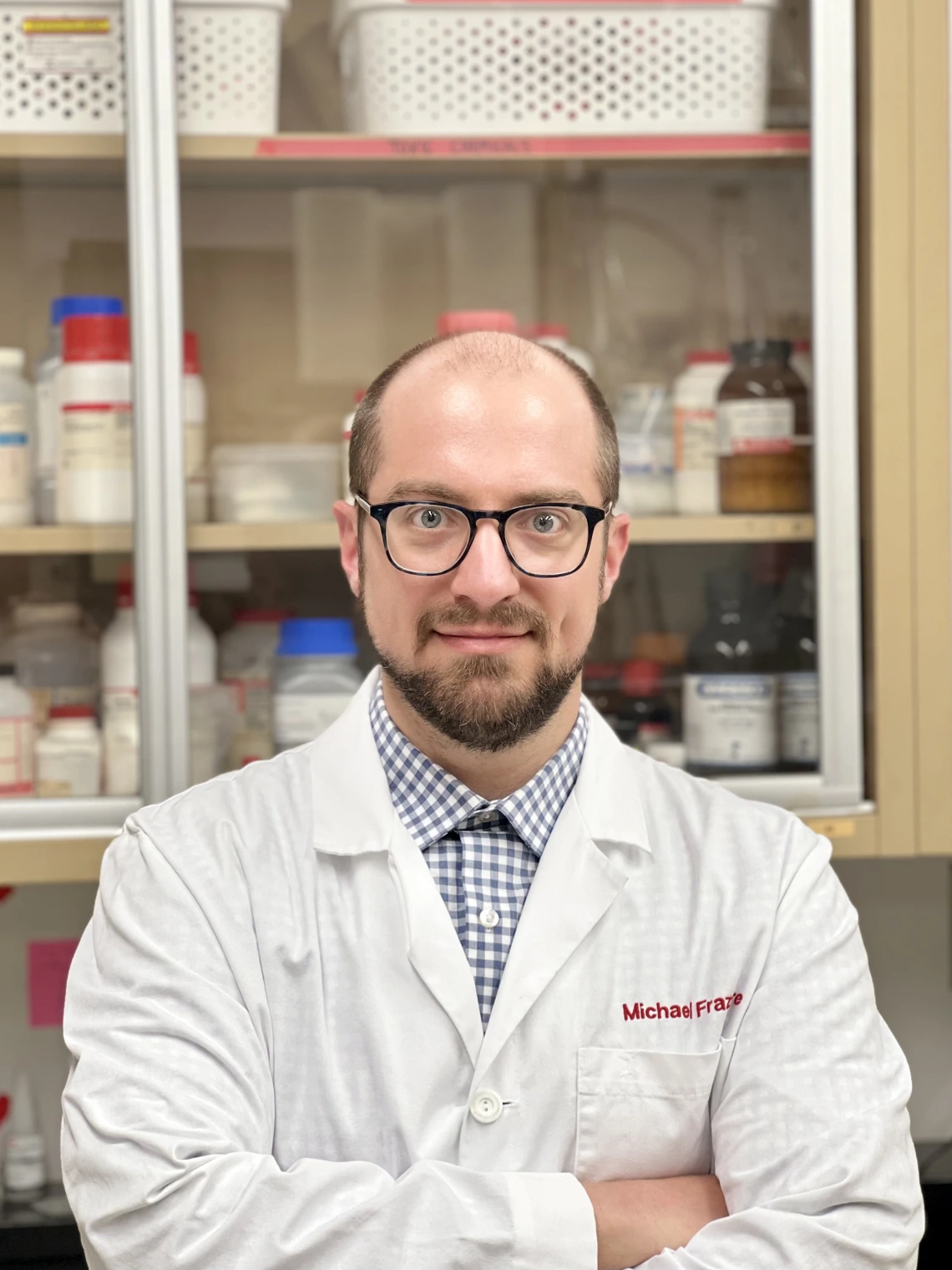Meet Dr. Frazure!

“Functions of the upper airway [such as swallowing and speaking] are part of our experience as humans, and part of our culture. It can be devastating when someone loses the ability to enjoy a meal with family or communicate freely.”
Dr. Michael Frazure is a speech-language pathologist who moved from bedside to bench during his PhD. As a T32 postdoctoral fellow in the Department of Physiology, he is currently researching the neural control of breathing and swallowing. Dr. Frazure’s research is informed by his clinical experience treating swallowing disorders and aims to identify new and effective treatment targets for dysphagia.
Dr. Frazure’s current project is investigating the biophysical properties of motor neurons -- a specialized type of nerve cell that controls muscle contraction. Dr. Frazure has particular interest in the motor neurons that control muscles of the tongue, which are important for behaviors including swallowing and respiration. Using a technique called patch-clamp electrophysiology, Dr. Frazure first labels the motor neurons by injecting a dye into a specific tongue muscle. The dye is transported from the muscle of interest to the brainstem via the nerve. Dr. Frazure can then visualize and record from the motor neurons and test various pharmacological compounds that modulate their function. This could lead to progress toward therapeutics for motor speech disorders, dysphagia, and obstructive sleep apnea. Conducted in the laboratory of Dr. Ralph Fregosi, Dr. Frazure has presented this work to international audiences at The American Physiological Society Summit and The Oxford Conference on Breathing, Emotion and Beyond.
In 2024, Dr. Frazure was awarded a Postdoctoral Research Development Grant to study the effects of opioid exposure on upper airway function, as opioids powerfully depress swallow function, even at small doses. Early data from this project was presented at the 2024 Arizona Physiological Society meeting.
When asked about his greatest accomplishment, Dr. Frazure said he is proud of helping his students succeed toward their goals. Following completion of his postdoctoral training, Dr. Frazure plans to pursue a career in academics, leading an independent research program.
See Dr. Michael Frazure’s publications here: https://www.researchgate.net/profile/Michael-Frazure
